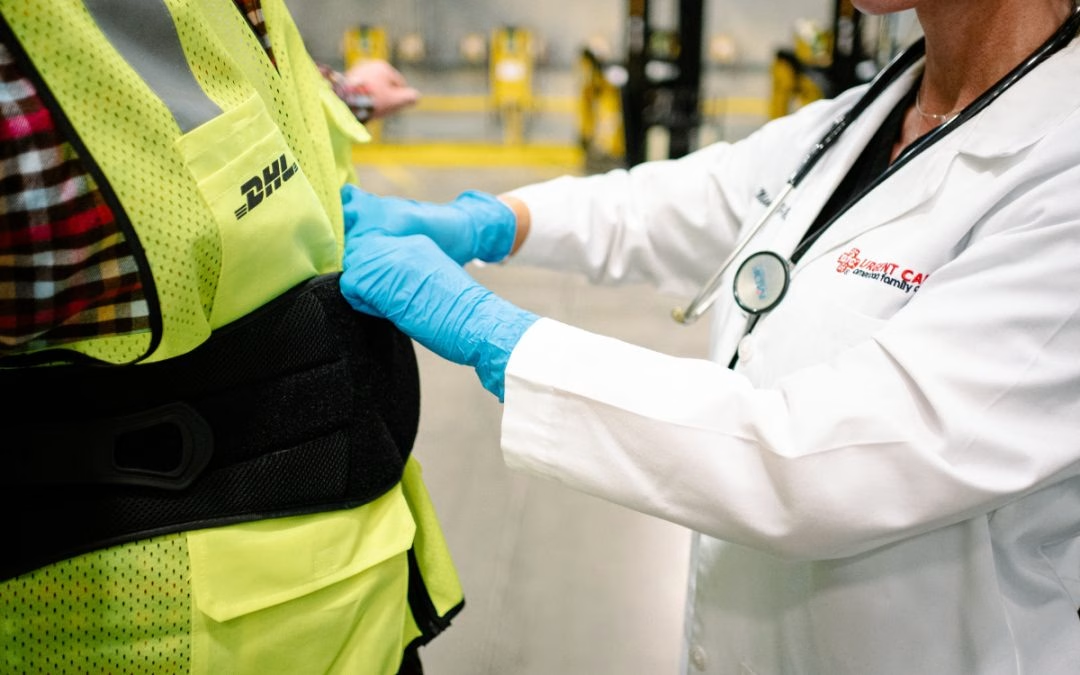
COVID-19 remains a global health concern even in 2024, with cases fluctuating as new variants emerge. Understanding when COVID-19 symptoms will likely appear following exposure can help you take the necessary steps to protect yourself and others. Learn more about what COVID-19 is, the range of symptoms it causes, the timeline for symptom onset, and when to seek medical care at AFC Ballantyne. We are here to make sure you stay healthy and continue enjoying Autumn activities near you.
What is COVID-19?
COVID-19, caused by the SARS-CoV-2 virus, is a highly contagious respiratory illness that can range from mild to severe. Initially identified in 2019, it has since spread worldwide, evolving into various strains with distinct characteristics. COVID-19 can spread through respiratory droplets and aerosolized particles from infected individuals, particularly in close-contact situations, making it essential to monitor symptoms closely if you’ve been exposed.
Understanding the Timeline for COVID-19 Symptoms
One of the challenges with COVID-19 is the range of time it takes for symptoms to appear after exposure. According to the Centers for Disease Control and Prevention (CDC), the incubation period—the time between exposure to the virus and symptom onset—typically ranges from 2 to 14 days. However, the average onset of symptoms often occurs around 5 to 6 days after exposure. Factors such as the specific COVID-19 variant and individual health characteristics, including vaccination status, may affect this timeline.
Even if you feel well immediately after exposure, it’s still possible to develop symptoms within the 14-day window. Remaining vigilant for symptoms and staying cautious is essential for the health of those around you, especially vulnerable groups such as older adults, young children, and individuals with compromised immune systems.
Common Symptoms of COVID-19
COVID-19 symptoms can vary widely, from mild to severe, and some people may even be asymptomatic. The most reported symptoms include:
⦁ Fever or chills
⦁ Cough
⦁ Shortness of breath or difficulty breathing
⦁ Sore throat
⦁ Congestion or runny nose
⦁ New loss of taste or smell
⦁ Fatigue
⦁ Muscle or body aches
⦁ Headache
⦁ Nausea or vomiting
⦁ Diarrhea
The symptoms of COVID-19 can be challenging to distinguish from other respiratory illnesses like the flu or a common cold. New COVID-19 variants may also bring slight variations in symptom profiles, so it’s essential to stay updated with reputable health sources like the CDC or AFC Urgent Care.
COVID-19 vs. Flu Symptoms
Since COVID-19 symptoms often overlap with those of other respiratory infections, it’s crucial to get tested for an accurate diagnosis. COVID-19 shares many symptoms with the flu—another contagious respiratory illness that increases in frequency during colder months. Both illnesses can lead to complications, especially in high-risk groups. However, because they are caused by different viruses (SARS-CoV-2 for COVID-19 and influenza viruses for the flu), treatments may differ. PCR testing is one reliable method to distinguish between COVID-19 and the flu, allowing you to pursue the correct course of care.
AFC Urgent Care Ballantyne offers COVID-19 and flu testing, so you can quickly and accurately determine the source of your symptoms and receive the most appropriate care.
What to Do If You Think You Have COVID-19
If you’ve been exposed to COVID-19 and start to feel unwell, it’s essential to take preventive steps to avoid spreading the virus. Follow these recommendations:
⦁ Stay Home: Avoid contact with others as much as possible. This includes family members, particularly those at high risk, such as elderly individuals and those with underlying health conditions.
⦁ Monitor Your Symptoms: Mild symptoms can worsen over time, so track your condition closely. Take note of any changes in breathing, chest discomfort, or fatigue.
⦁ Get Tested: Even if symptoms are mild, testing can confirm whether you have COVID-19. AFC Ballantyne provides COVID-19 testing options, including PCR and rapid tests, to help you quickly determine your status.
⦁ Follow Quarantine Guidelines: If you test positive, adhere to the CDC’s quarantine guidelines to help protect others.
When to Visit AFC Ballantyne
For most people, COVID-19 symptoms can be managed at home with rest, fluids, and over-the-counter medications. However, some individuals may develop more severe symptoms that require medical attention. Visit AFC if you or a loved one experiences any of the following:
⦁ Trouble breathing
⦁ Persistent chest pain or pressure
⦁ New confusion
⦁ Difficulty waking or staying awake
⦁ Pale, gray, or blue-colored skin, lips, or nail beds (depending on skin tone)
These symptoms indicate a more serious illness that requires prompt medical attention. Knowing when COVID-19 symptoms are likely to appear after exposure can help you make timely decisions to protect yourself and others. Symptoms may range from mild to severe, and with each new variant, there can be changes in how the virus presents itself. If you’re feeling unwell after potential exposure, staying home, monitoring your symptoms, and getting tested are the best steps you can take.
At AFC Urgent Care Ballantyne, we’re here to help you navigate your health through COVID-19 testing, treatment, and flu vaccinations for seasonal protection. Visit us if you need COVID-19 testing, have questions about symptoms, or want to learn more about keeping yourself and your loved ones safe. Staying informed and proactive about your health is key to protecting yourself and those around you during the fall season.


